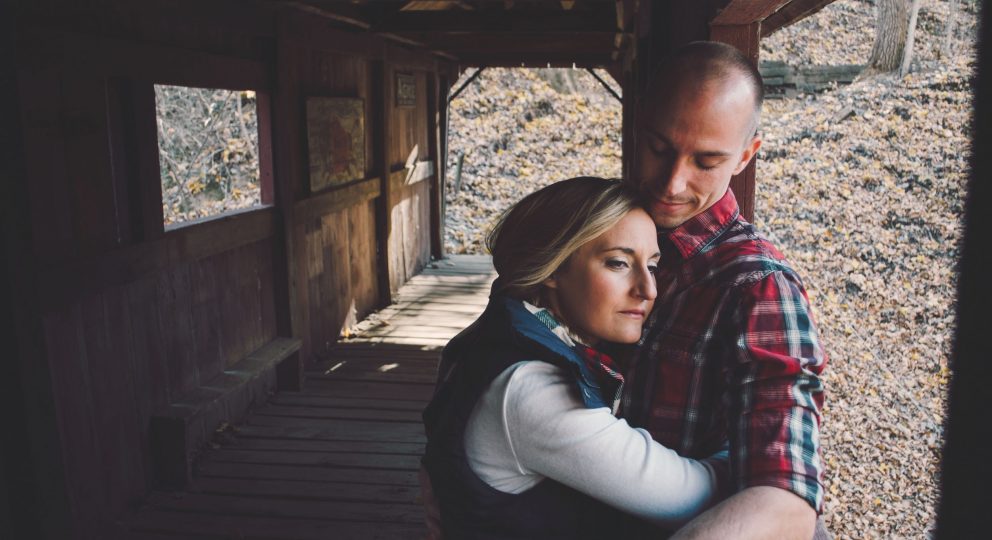 Interview Guest: Amir Levine, M.D., is a psychiatrist, neuroscientist, and co-author of a popular book, Attached: The New Science of Adult Attachment and How It Can Help You Find and Keep Love, which has been translated into 14 languages. You can read Part I of the interview with Dr. Levine here.
Interview Guest: Amir Levine, M.D., is a psychiatrist, neuroscientist, and co-author of a popular book, Attached: The New Science of Adult Attachment and How It Can Help You Find and Keep Love, which has been translated into 14 languages. You can read Part I of the interview with Dr. Levine here.
It’s important to be in a secure relationship because insecure relationships are “a recipe for a lot of pain,” according to Dr. Levine.
This doesn’t mean that partners in insecure relationships don’t love each other. They often love each other a lot. The problem is that in an anxious-avoidant relationship, there tends to be a sense of “stable instability.”
These relationships have lots of fights due to a reinforcement of each other’s insecurities. The avoidant partner may think, “Oh, my partner is clingy,” but what they don’t understand is that it’s not their partner. It’s a pattern that is being created between two people that make it this way.
It’s a never-ending cycle. When the avoidant partner senses a threat, such as their partner getting too close, they deactivate their attachment system and create distance. The anxious partner senses this distance as a threat, which activates their attachment system. So they become clingy. Round and round they go.
The Three Attachment Styles
How we detect a threat in a relationship is influenced by our attachment style. There are three different attachment styles: anxious, avoidant, and secure. Attachment is about how close and intimate you want to be.
- If you love to be close and intimate, but you don’t really see a lot of threat, then you’re secure.
- If you crave intimacy and closeness but you have a very sensitive radar that perceives a lot of threat in a relationship, you have an anxious attachment style.
- If you feel uncomfortable with too much closeness and you see closeness as a threat, then you have an avoidant attachment style.
If you have different levels of comfort with closeness in your relationship, you probably have different attachment styles. The two opposing ways of approaching closeness that really inflame one another is the anxious-avoidant relationship.
They bring out the worst in each other by constantly inflaming their attachment system. It’s exhausting because both partners live with a constant sense of threat.
A Secure Relationship
When you talk to people who have experienced both an insecure relationship and a secure relationship, it’s almost like living on two different planets, according to Dr. Levine.
A secure relationship feels calm. The anxious-avoidant relationship consumes you in the constant ups and downs.
In the interview, Dr. Levine shares an example of an anxious-avoidant relationship: “Throughout her whole relationship, a woman never knew when she was going to see her partner next. She dated this man for about a year and half. The man said he loved her, but there was this uncertainty in his actions that kept her feeling anxious.”
This relationship was not secure because the avoidant partner was not doing the small things that create a secure relationship. After writing Attached with Rachel Heller, Dr. Levine formulated the foundation of a secure relationship, which he calls CARRP, an acronym that stands for:
- Consistency
- Availability
- Reliability
- Responsiveness
- Predictability
Having a secure relationship does not mean being held constantly or given constant attention. It’s the little things, like being responsive and attentive most of the time, that create a sense of security and safety in the bond.
If you can recognize secure partners early on while dating, you’ll navigate the dating world much better and likely find yourself in a secure relationship.
For powerful tips on how to cultivate a secure relationship or find a secure romantic partner, even if you’re insecure, check out Attached: The New Science of Adult Attachment and How It Can Help You Find and Keep Love. If you’d like to learn about your attachment style, you can take the Attachment Compatibility Assessment here.






